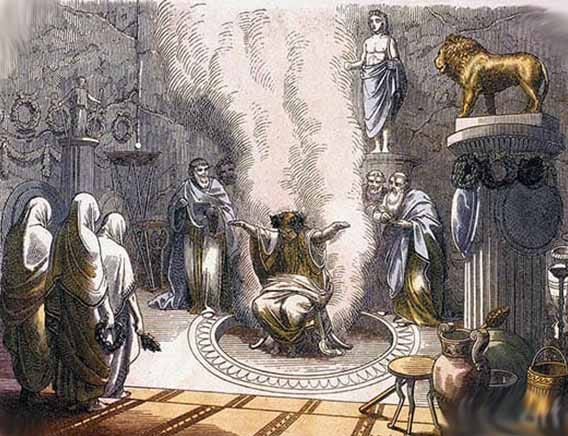Know Thyself.
I was recently listening to a secular professor talk about how the university’s main purpose is “justice.” Professors, she said, must pursue justice and teach their students to do the same. Without realizing it, she was invoking Plato.
As the founder of the Academy—the very word we still use for our institutions of learning—Plato believed that knowing what is just is the most important thing to know. His central work, The Republic, is devoted to the question of justice.
But what stood out to me about this professor was how she was very clearly using “justice” to mean “benefiting the people I approve of.” She masked it in virtuous language.
And my question was: Does she know she is doing this?
Is she lying to us?
No—I don’t think so. More likely, she doesn’t know herself. She is in self-deception about her motives. She can’t be honest, even with herself, that what drives her is ultimately self-interest and, at root, racism.
So I ask you: Do you know yourself?
The Temple of Apollo at Delphi bore the inscription: Know Thyself. The very fact that one must be told to do this suggests how easy it is not to know oneself. The Greeks understood that self-knowledge is difficult—something that takes a lifetime to attain. They knew it required a mentor: someone wiser, older, further along in the journey, who demonstrated a level of self-knowledge.
But there was a self-imposed limit to what the Greeks could know. They could not be honest about their own lack of wisdom. They believed they were the pinnacle of human thought—and yet they went to a dark cave, to ask a drunken priestess, the Pythia, to channel a spirit calling itself Apollo.
This priestess would babble some riddle, and the Greeks would then set about trying to decipher the mystery in search of secret wisdom. Socrates based his life on what the Pythia told him and died thinking he was obeying Apollo the sun god.
But he never asked:
Did Apollo really say it?
Should I even listen to Apollo instead of some other god?
Does Apollo actually exist?
The truth is, God the Creator had already clearly revealed Himself in creation—surrounding them, above them, within their very minds. Yet they ignored that revelation of the eternal God in favor of a whisper in a cave from a temporal, finite, sinful deity.
True self-knowledge begins with knowing yourself as a creature before God.
It begins with being honest about our rejection of what God has made clear. It begins with recognizing our natural resistance to everything that comes from God.
And if you’re not sure whether that’s true of you—just look at your life.
How do you live?
What do your choices say?
Because that’s where self-deception shows itself.
Not in what we claim to believe—but in how we actually live.





What are the right answers to these questions? How would I know if I'm self-deceived?